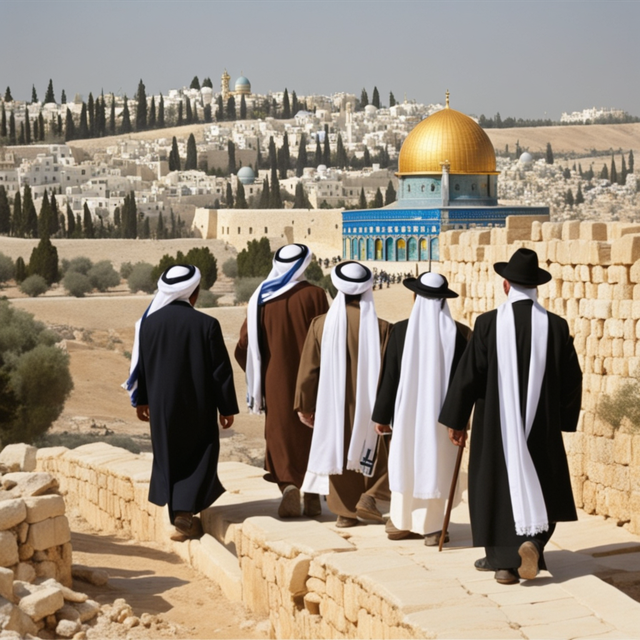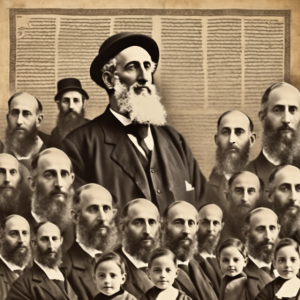The Journey of the Jewish People: A Legacy of Resilience, Contribution, and Purposeful Choices


Introduction
The Jewish people have a long and intricate history, defined by a complex interplay of resilience, innovation, ethical leadership, and purposeful choices. As we find ourselves in a world marked by increasing challenges, both personal and geopolitical, the Jewish legacy provides vital lessons in how to navigate these complexities. This post aims to offer an expansive look at this enduring story and its continuing implications, particularly in light of present-day issues such as the Israeli-Palestinian conflict and the unfolding situation with Hamas in Gaza.
Ancient Beginnings
Jewish history began with the covenant between the biblical figures of Abraham, Isaac, and Jacob, and Yehovah. This established not just a religious tradition but also a moral code and a sense of divine purpose that continues to guide the Jewish people. This call to purposeful living finds its echo in the Biblical admonition from Joshua to “Choose you this day whom ye will serve” (Joshua 24:15), a command that has sustained its relevance through the ages.
The Exodus and the Ten Commandments
The escape from Egyptian bondage under the leadership of Moses represents one of the defining moments in Jewish history. The receipt of the Ten Commandments at Mount Sinai provided a moral and legal framework that has influenced not just Jewish thought but also Western civilization at large. This framework encompasses an enduring commitment to justice, peace, and the sanctity of life, principles that are essential for navigating today’s complex moral and geopolitical landscape.
The Diaspora and the Roman Exile
The diaspora began with the destruction of the First and Second Temples, scattering the Jewish people across various lands. Despite facing intense persecution and adversity, the Jewish communities upheld their identity by adhering to their religious beliefs and practices. This resilience can be seen as a historical enactment of the call to “choose you this day whom you will serve,” even when faced with life-threatening circumstances.
Medieval Period
Despite facing severe restrictions, forced conversions, and expulsions in the medieval period, Jewish scholarship and tradition flourished, especially in Islamic lands. The community’s ability to adapt and contribute under difficult conditions represents a practical application of the Biblical guidance to serve Yehovah wholeheartedly and purposefully, even in the face of adversity.
The Holocaust
The Holocaust stands as a devastating chapter in Jewish history, highlighting the dire consequences of unchecked prejudice and bigotry. Yet, the post-war Jewish experience serves as a testament to resilience and the ability to rebuild—a fulfillment of the spiritual commitment to serve Yehovah even in the darkest times.
The State of Israel and Contemporary Issues
The establishment of Israel in 1948 offered a homeland for the Jewish people but also led to complex challenges, including the Israeli-Palestinian conflict and the more recent tensions with Hamas over Gaza. These challenges require making difficult choices in adherence to ethical principles. The Biblical call to serve Yehovah informs these choices, advocating for a balanced perspective that respects justice, human dignity, and the pursuit of peace.
Contributions to Humanity
Jewish contributions to humanity extend across multiple domains including science, literature, and the arts. The disproportionate representation of Jews among Nobel Laureates, for example, underscores the community’s commitment to bettering the world—a commitment that aligns with the Biblical call for purposeful living.
Conclusion
The Jewish people’s history is a complex tapestry of resilience, contribution, and ongoing challenges. It demonstrates the importance of making purposeful choices, as enjoined by scriptures like Joshua 24:15, to serve Yehovah, especially in complicated geopolitical circumstances such as those involving Hamas and the Israeli-Palestinian conflict. As we face an uncertain future, this enduring legacy offers invaluable lessons in resilience, ethical commitment, and the power of making informed, purposeful choices.
